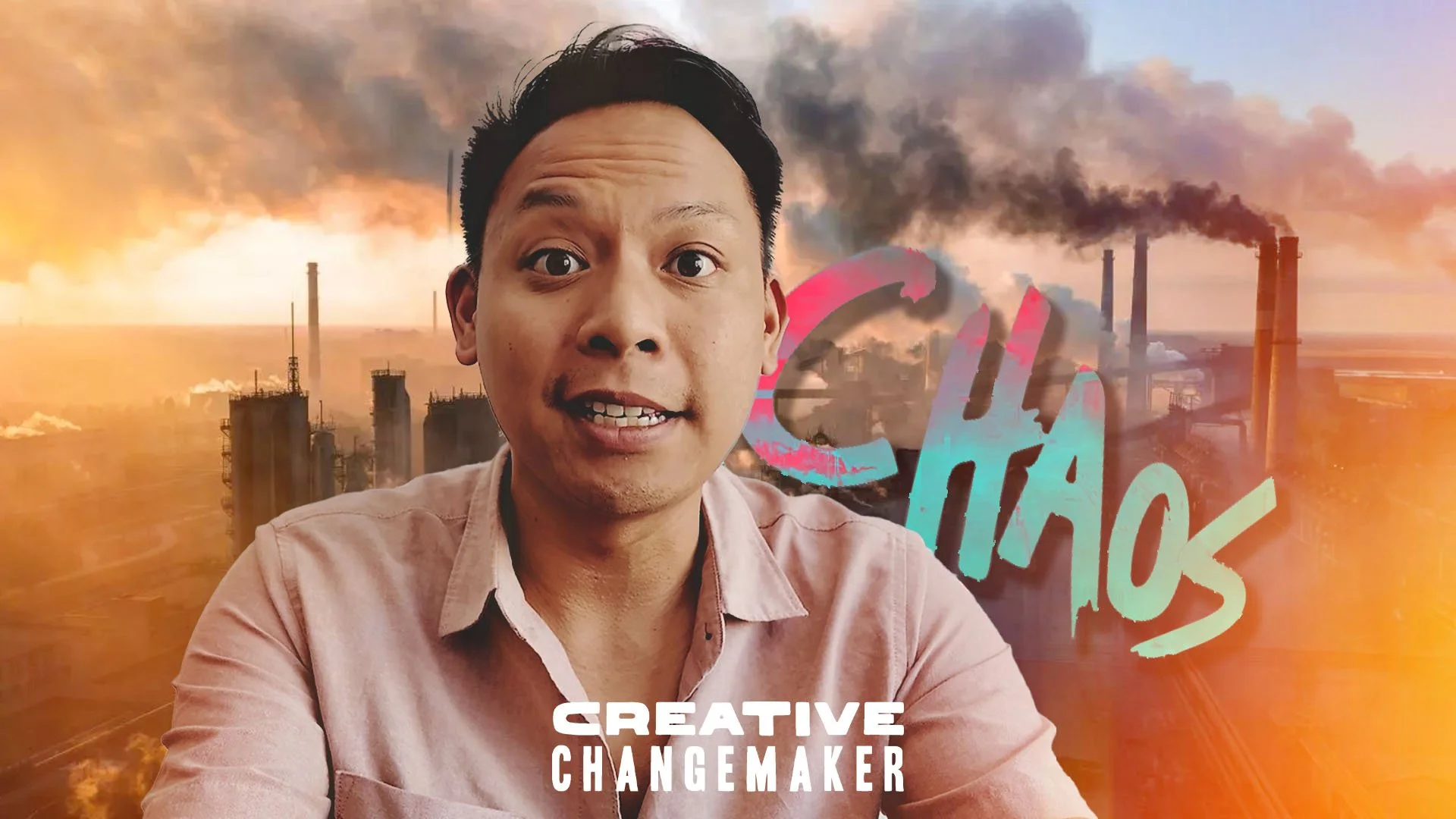Don’t fall for fatalism
It’s been a totally normal, kinda quiet week in the world, huh? No. Of course not. Do such weeks even exist anymore?
It’s challenging to be somebody who works for good in the world when it feels like it’s constantly towards a greater state of chaos.
How do you work for good when it feels like you’re two episodes out from the series finale?
Take a moment.
Breathe.
Go slowly.
I think doing good in a time of chaos requires people to be a bit like that cliche from a sports movie, where the main character takes a breath, slows everything down, and suddenly can hear their inner thoughts over the yells from the crowd.
Watch Now
It’s human and natural to have a wide range of emotional reactions flare up when chaos strikes. Rather than trying to strongarm them, I find it’s helpful to give them a moment to do their thing. Name them.
Are you fearful of what the future holds?
Are you angry at anyone in particular?
Giving these emotions acknowledgement is way better than giving them the steering wheel.
There’s a massive difference between responding to events and reacting to them.
Being reactive tends to keep chaos in circulation. Being responsive helps prevent further harm and invites the wise version of yourself.
Different things seem to be helpful for different people. Time outside always does me good. Don’t discount breathwork. Also, seeing the world through the filter of screens doesn’t seem to help, so keep that in check.
In a loud world, I’d love to be the sort of person who turns the volume down. Who brings it to level where real conversation and connection becomes possible. It’s hard to do that when simply being a participant in the noise.
You don’t need to have a hot take or new angle on everything. Just because you have an online account doesn’t meant you need to be the first to chime in on everything.
Sure there are some things where you know you gotta speak out and use your voice. But the internet isn’t the only place for that and far less effective than what happens around tables.
One of the unfortunate side effects I’m seeing a lot of is that everybody wants to dissect every breaking event. Here’s what this means politically… here’s how this will shift behavior…
In times of uncertainty there’s a ravenous appetite for things that reduce it. So we go to town with polls and surveys and thinkpieces.
So few of us are unwilling to say the most honest phrase:
I don’t know.
The immediacy of the internet has made us unfamiliar with having to wait for information. To wait and see how things will play out.
One of my greatest values, however, remains curiosity. And I define that as a healthy relationship with the unknown.
There’s probably a way in which future projections can help guide us but I see an excessive obsession over predicting the future as a way to be in denial about how none of us really know what it holds.
There’s one form of denial that simply irritates me more than the others though.
Fatalism.
Acting as though the game has been lost when it’s only halftime.
Judging by the amount of ‘we’re so screwed’ posts I’ve seen in recent weeks, fatalism is trending. And I can kind of sympathize with people who lean into it as inoculation against being disappointment in the future.
But fatalism is so toxic that it can often turn into a self fulfilling prophecy.
I’ve been working in climate communications for a good while to have seen oil companies pivot from denying climate change to insisting that it’s too late. The latter message also prevents real action.
Fatalism can bring down the important work being done by changemakers and movements.
I like the way Hank Green put it recently: “The abyss is both undesirable and pretty avoidable. Also, pitching the abyss as inevitable feels like a pro-abyss talking point.”
Sure, worry can be part of an honest response, but fatalism isn’t. Because the honest thing is that none of us actually know how the future goes.
So speaking of the work in front of you, it’s important to remember that every person is inundated with terrible news of things beyond our control. It creates a sense of helplessness. But we aren’t totally helpless, it’s more complex than that.
We don’t have equal amounts of influence in the world. But nobody sits at 0 or 100. You aren’t responsible for the inequity. Just your response.
Find your contribution, something you can keep showing up for bit by bit.
There’s a reason why people who are more closely engaged with solutions (climate, poverty, housing, whatever flavor) tend to be more hopeful than people who keep tabs on those things from the distance. Sure they feel the setbacks personally, but they know the forces working alongside them.
Don’t let the chaos of any given day distract you from what’s important right now: how up for the people and spaces right in front of you.
To adapt a quote from Grace Lee Boggs, everybody keeps trying to move a critical mass when what we most need are critical connections.
Think of all the people you’re glad to have alive right now. The people whose inner resolve you admire. The people you know who problem solve and make everyone’s life worth living. You’re part of that same force.
Do it for your people.
Do it with your people.






